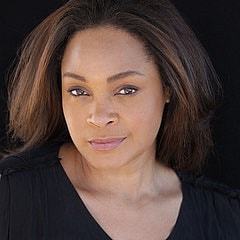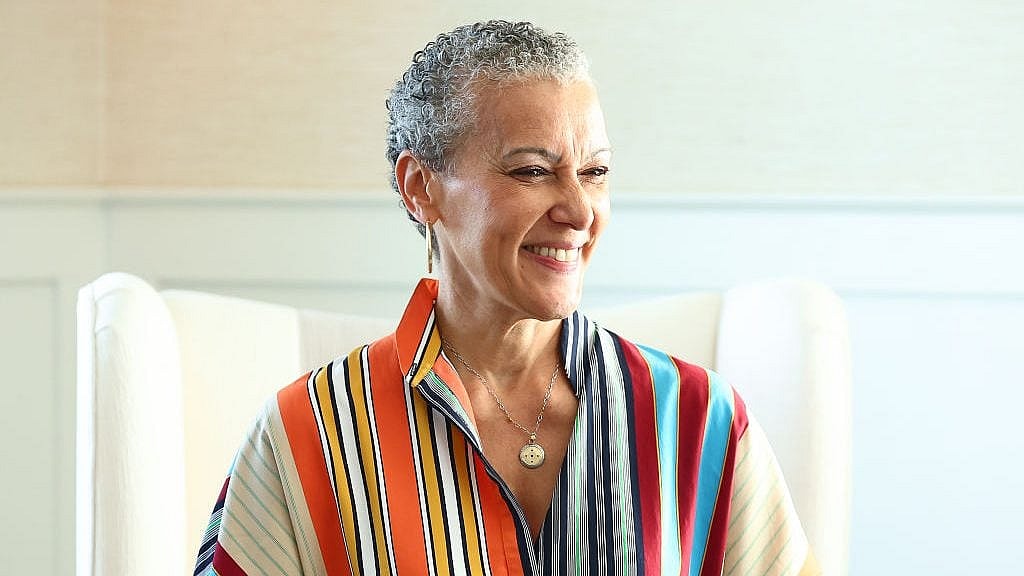If you were biologically born a woman and are of a certain age that falls between Gen X and Boomer, chances are you’re either approaching, experiencing, or have surpassed “The Change,” also known as menopause. If it’s the former, you’re not alone; over one million American women will enter menopause this year. If it’s the latter, congratulations — can’t wait to join you on the other side.
For decades (and likely centuries), the conversation around menopause has largely existed in the joke-o-sphere — with tropes about hot flashes, short tempers and arid undercarriages. (Who can forget Clair Huxtable shoving her head in the freezer in semi-jest?) However, both physically and psychologically, the reality of living through perimenopause and the eventual stages of menopause are far more confounding than we’re led to believe, mainly because, like womanhood itself, it’s unique to every woman.
This is why we need to talk openly about menopause — and what better time than World Menopause Day?
“After many years of neglect, we have finally seen long overdue unprecedented attention given to menopause in the popular media, empowering women to seek care for menopause symptoms,” states a 2024 white paper published by the International Menopause Society. Nevertheless, many of us remain confused about what therapies are available, helpful, safe, and right for us, individually.
At 49, I am both a newlywed and (bless my husband’s heart) a perimenopausal enigma. At any given moment, I’m freezing, then sweltering. I’m full of affection and attraction but struggle with libido. All the “thickness” that once gave me a healthy Coke bottle shape now wants to migrate to my middle (we’re fighting it out). My long, thick hair is now unquenchable thirsty, and shedding in ways that alarm me and my hairstylist. I’m constantly misplacing things — my phone, most consistently — and am often forced to remind myself why I’ve wandered from one room to the next. Sleep is as irregular as my menstrual cycle. After years of staving off unplanned pregnancy, I’m now hyper-aware of my dwindling egg reserves — and yet, because I’m also at an age where “oopsies” can happen as these now-geriatric eggs flee my ovaries, I’m also on birth control in addition to HRT because ain’t nobody got time for that when they’re planning their honeymoon and 50th birthday.
“Being in your 40s is crazy. Some friends are grandparents and some friends have newborns,” reads a popular meme circulating online. That’s just the tip of the reproductive iceberg at this stage of life.
In short, it’s a wild and unpredictable time. As Oct. 18 is annually recognized as World Menopause Day (themed this year around menopause hormone therapy), it’s worth asking: Why are so many of us still in the dark about these inevitable changes to our bodies and minds? (Spoiler alert: Women’s health has rarely, if ever, been a widespread priority beyond reproductive debates.) So, I took to social media, asking the women in my circle to weigh in about their perimenopause and menopausal experiences, both expected and unexpected. Within an hour, dozens of responses had flooded in.
“Every day is different,” a sister-friend commented. “Understanding a new metabolism is a challenge. The body rejecting things that I could normally do before is a challenge. Grace and patience is key,” she added.
“I’m 48 and waiting every day for it to end lol,” said another. “[There are] changes I was unaware of: hair texture, weight gain, muscle aches and insomnia.”
“Feeling lost, dazed and confused. ‘Where’s my keys, my glasses, my purse? Ooh in my hand,'” an acquaintance joked. “I wish someone had told me how much the body rebels against my memory of it.”
“Real talk: I wasn’t expecting my mojo to wane,” a writer-friend shared as we mourned our elusive libidos. Others claimed theirs had unexpectedly been skyrocketing.
“For me, the most significant change has been mental. My tolerance and patience for bulls—t is close to zero,” another chimed in. “My biggest challenge is sleep. I can’t seem to get a full 6-8 hours of uninterrupted sleep no matter what I try.”
A college friend simply said, “I want off this rollercoaster of misery.”
Is misery all we can expect from menopause? Well, the good news is no, but the truth is that most of us walk into this phase of life wholly unprepared for the myriad and varied ways it might hit us, or how long it might last. On average, perimenopause typically emerges in a woman’s mid to late 40s, lasting about seven years — though it can extend twice that long before the requisite year without a period that marks the transition to menopause. And you don’t have to be middle-aged at the onset; any number of factors, including fibroids, polycystic ovary syndrome (PCOS), cancer treatments, or just plain old biology, can prompt perimenopause to begin as early as a woman’s 30s.
While the symptoms can be all over the place, for many, the biggest obstacles arise when trying to find proper diagnoses and relief — which is why we, as women, have to lead the charge in keeping these conversations at the forefront. No one is going to take our health and well-being as seriously as we will — or provide us with the language we need to advocate for what we need, whether that’s an over-the-counter supplement, cooling sheets, more advanced interventions like hormone replacement therapy (HRT) or all of the above.
“I honestly would give the advice of talking to more people going through this so we could form a community rather than trying to figure out things solo,” said my sister-friend. “Everyone’s body is different. But the support has been amazing.”
Recommended Stories
If you’re in or on the verge of “The Change,” the first and best thing you can do is arm yourself with the knowledge to navigate it. In addition to informative podcasts, blogs, and a growing number of books on the subject, on October 17, PBS debuted “The M Factor: Shredding the Silence on Menopause” to help demystify the dialogue about this naturally occurring life event. Most importantly, don’t underestimate the power of community; family, friends, and even passing acquaintances can be invaluable in giving advice, empathy, recommendations and referrals, especially when a qualified specialist might come in handy. And remember: While you likely have little to no control over when and how menopause might arrive, it’s not the end of the world; just your period (eventually).
“Embrace this powerful transition. Menopause is a time of empowerment,” advised my cousin as we collectively commiserated. “Find an excellent OB/GYN that takes you seriously and believes you. We have to be our own best advocates; don’t leave everything up to doctors,” she added, joking, “[and] get fans for EVERY room in the house or just embrace looking like James Brown during many of his performances.”
Happy World Menopause Day! We’re gonna make it through!

Maiysha Kai is theGrio’s lifestyle editor, covering all things Black and beautiful. Her work is informed by two decades of experience in fashion and entertainment, great books, and the brilliance of Black culture. She is also the editor-author of Body: Words of Change series.










